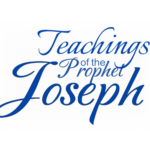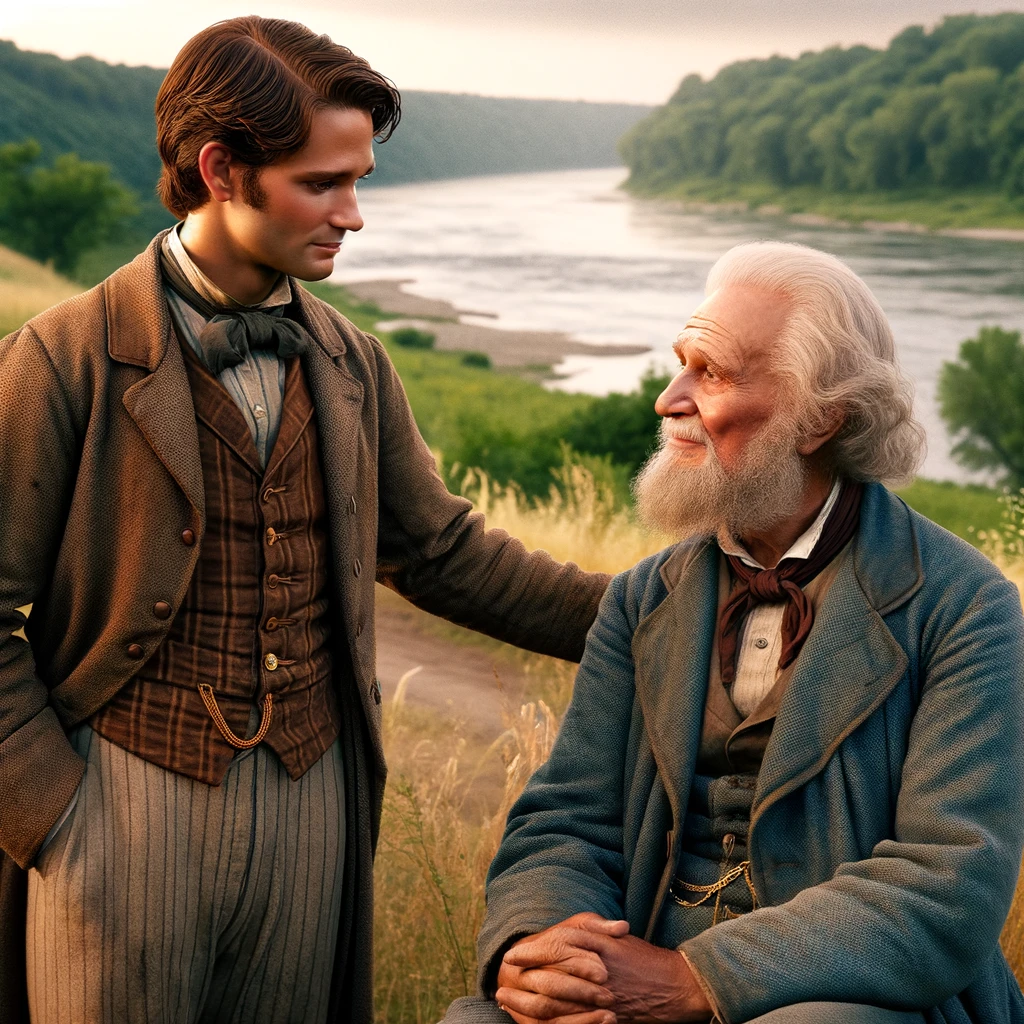“Uncle” Allen Stout, Lizzie’s uncle, used to come to live with us while he worked in the Temple . . . We all liked “Uncle Allen” and was glad to have him stay with us. He had used coffee for many years but when he came to work in the Temple he would not drink it any more. He was in Nauvoo a bodyguard to the Prophet and when asked to tell something about the days of Nauvoo he would tell it, but he was not much of a talker unless asked to do so. He gave me much information about the early history of the Church because I asked him many questions.
One day he said in answer to a statement I made that I thought it could not be possible for one to see a heavenly being, that I might see one without recognizing it as such—as happened once with him. I immediately became anxious to know all about it. He told me he was once walking with the Prophet on the west side of the Mississippi River on the road to Montrose, I think. They saw a man walking along a road leading in from the south and coming towards them. The Prophet told Allen to remain where he was while he stepped over to speak with this pedestrian. Allen turned his back towards them and for a time forgot the prophet and became engaged with his own thoughts while he stood whipping a low bush with the cane he carried. The hand of the Prophet upon his shoulder aroused him. The Prophet said, “We must return immediately to Nauvoo. They walked silently and rapidly. Allen became very sorrowful over his recreancy to his duty and could not refrain from weeping. The prophet asked him why he wept. Allen confessed “I am an insufficient bodyguard—criminally neglectful of your welfare. I allowed that man you met to speak with you without even being ready to defend if he attacked you. He could have killed you and made his escape without my knowing who he is, which way he went or what he even looks like. You will have to dispense with my services and take a guard on which you can depend. Your life is too precious to be trusted to my care.” The prophet then said “That man would not harm me. You saw John the Revelator.” Some years afterwards I referred to this instance while speaking with the grandson of “Uncle Allen,” and was surprised that he had never heard of it before. On further investigation we found that the old man had never told that story to his children, so we let valuable history slip by us.
Martha Cragun Cox (1852-1932) Autobiography, 1928-1930,” LDS Church Archives, Salt Lake City, Utah, 139; Mark L. McConkie, Remembering Joseph, pp. 210-211.

